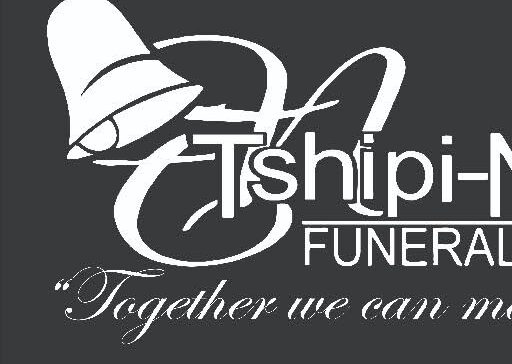
Tshipi-Noto is Hiring
Position: Mortician
Mortician Job Description: The Role, Responsibilities, and Skills Required
A mortician, also known as a funeral director, is a licensed professional responsible for overseeing the preparation and handling of deceased bodies, arranging funeral services, and supporting grieving families through the process of loss. This role involves a unique combination of practical, emotional, and legal responsibilities, as morticians play a crucial part in helping families honor their loved ones with dignity and respect.
Key Responsibilities of a Mortician
- Body Preparation and Care
One of the primary duties of a mortician is to ensure the body is properly prepared for viewing or burial. This can involve embalming, dressing, cosmetology (for appearance purposes), and casketing the deceased. Embalming is a process that preserves the body by treating it with chemicals to delay decomposition and prepare it for display at funeral services. - Funeral Planning and Coordination
Morticians work closely with grieving families to plan funeral services. This includes helping to arrange the location, timing, and logistics of the funeral, whether it be a traditional burial, cremation, or other services such as memorials. They assist in selecting caskets, urns, flowers, music, and other elements that reflect the wishes of the deceased and their family. - Legal and Regulatory Compliance
Morticians ensure all legal paperwork is completed in accordance with local, state, and national regulations. This includes obtaining death certificates, burial permits, and other necessary documentation. They must also ensure compliance with health and safety regulations, such as those related to the embalming process and the transportation of the deceased. - Transportation of the Deceased
Funeral directors are often responsible for the safe transport of the deceased to and from the funeral home, to the place of death, and to the cemetery or crematorium. This may include arranging transportation for family members and other funeral attendees as well. - Grief Support
A vital, yet often overlooked aspect of the mortician’s role is providing emotional support to the bereaved. While the funeral director is not a counselor, they often serve as a compassionate point of contact, offering advice, comfort, and guidance during a family’s time of grief. They may also refer families to grief counselors or other mental health professionals if needed. - Organizing Memorial Services
Morticians are responsible for ensuring that all aspects of memorial services are arranged, including coordinating speakers, officiants, religious rites, and the placement of any memorial items. This could involve organizing wake services, viewings, or other commemorative events before the burial or cremation. - Cremation Services
If the deceased has requested cremation, the mortician is involved in overseeing the cremation process. This includes verifying the identity of the deceased, ensuring proper handling of remains, and assisting in the selection of cremation urns or other memorialization options. - Aftercare Services
Following the funeral or memorial service, morticians may provide aftercare services, including assistance with arranging the transfer of assets, writing obituary notices, or managing any legal issues that arise after death. They may also help the family with post-funeral arrangements like settling estates or preparing for a memorial event.
Skills and Qualifications Required
- Education and Training
Most morticians need to complete formal education, typically earning an associate’s degree in mortuary science from an accredited institution. This training covers anatomy, embalming, law, ethics, and business practices. After completing their coursework, aspiring morticians must also complete an apprenticeship or internship, often under the guidance of a licensed funeral director, to gain hands-on experience. - Licensing and Certification
In many regions, morticians are required to pass a state or national licensing exam to practice legally. This exam typically includes topics related to embalming, funeral home operations, and ethics. Morticians may also need to maintain continuing education credits to ensure they stay up-to-date with new regulations and industry practices. - Attention to Detail
Morticians must be highly detail-oriented. Whether preparing bodies for viewing or ensuring that funeral services adhere to a specific plan, attention to detail is critical to avoid errors and ensure that everything is carried out with precision and respect. - Emotional Intelligence
Working with grieving families requires a high level of empathy and emotional intelligence. Morticians need to be able to provide comfort and support in a compassionate and professional manner, navigating the emotional complexities of death while still maintaining composure and professionalism. - Physical Stamina
The job can be physically demanding, as morticians may need to work long hours, transport bodies, and perform various tasks that require physical exertion. This role often involves late nights and weekends, especially during busy periods. - Communication Skills
Morticians must be effective communicators, both in terms of speaking and listening. They must clearly explain options to clients, listen to families’ wishes, and provide detailed information about services. Strong communication also extends to handling correspondence, managing staff, and working with other professionals involved in the funeral process. - Business and Management Skills
Many morticians also manage funeral homes or work in a supervisory role, requiring them to have strong business and financial management skills. This includes overseeing budgets, managing staff, handling marketing, and ensuring the smooth day-to-day operations of a funeral home.
Location: Leondale
DEADLINE: Thursday, 19th December 2024.
Submit your CV by email to hr@tshipinoto.co.za
A mortician plays a pivotal role in supporting grieving families, preparing the deceased, and ensuring the proper management of funeral and burial services. While the profession requires emotional resilience, meticulous attention to detail, and strong organizational skills, it also offers the opportunity to make a meaningful impact on families during one of the most difficult times in their lives. The work of a mortician is not only technical but also profoundly compassionate, as they help individuals honor their loved ones with dignity and respect.
𝐈𝐟 𝐲𝐨𝐮 𝐡𝐚𝐯𝐞 𝐧𝐨𝐭 𝐡𝐞𝐚𝐫𝐝 𝐟𝐫𝐨𝐦 𝐮𝐬 𝐰𝐢𝐭𝐡𝐢𝐧 𝟏𝟎 𝐝𝐚𝐲𝐬 𝐚𝐟𝐭𝐞𝐫 𝐭𝐡𝐞 𝐜𝐥𝐨𝐬𝐢𝐧𝐠 𝐝𝐚𝐭𝐞, 𝐩𝐥𝐞𝐚𝐬𝐞 𝐜𝐨𝐧𝐬𝐢𝐝𝐞𝐫 𝐲𝐨𝐮𝐫 𝐚𝐩𝐩𝐥𝐢𝐜𝐚𝐭𝐢𝐨𝐧 𝐮𝐧𝐬𝐮𝐜𝐜𝐞𝐬𝐬𝐟𝐮𝐥.